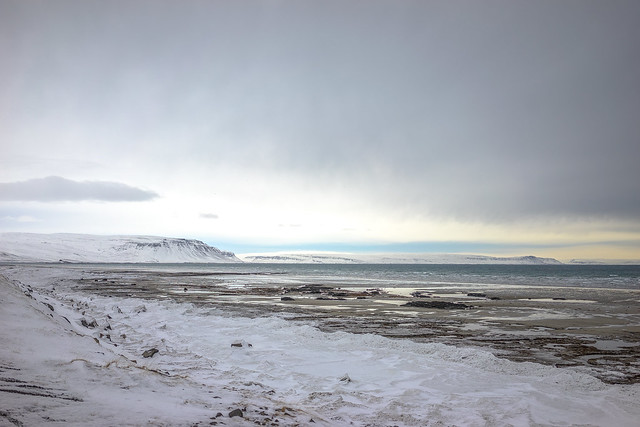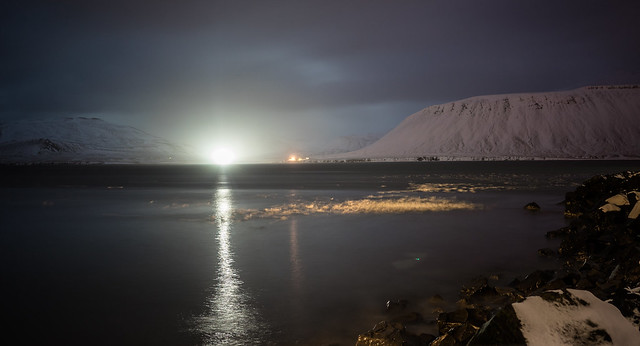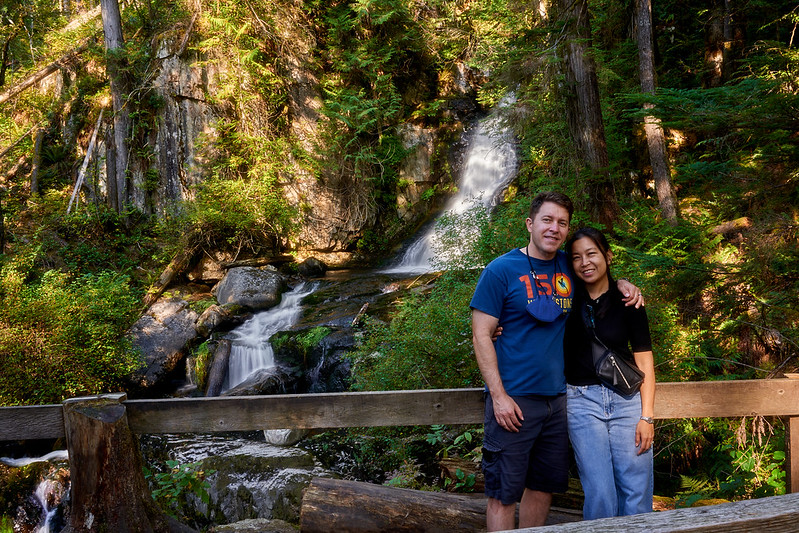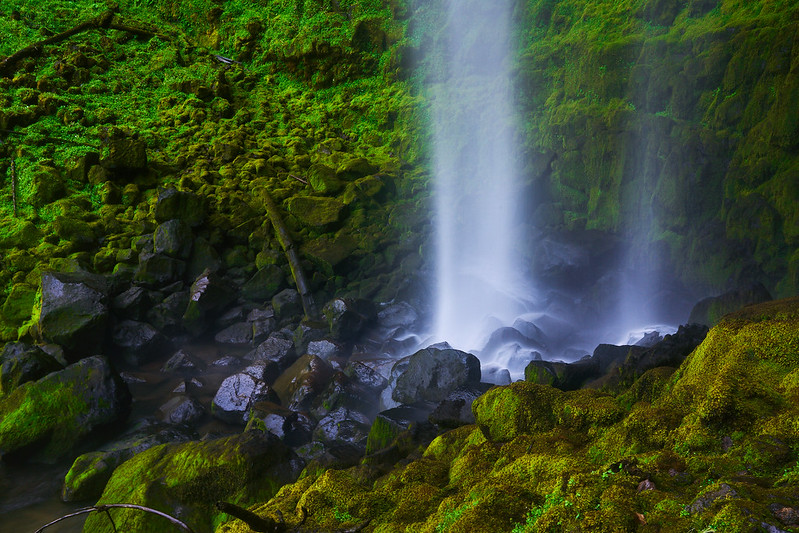We woke up to a howling gale of 20 meters per second in the fjord. It would last all day and make our sightseeing impossible. We wanted to visit the western side of the westfjords to see the red sand beach in Keflavik. But the road across curved to the right in the photo below. Would you risk that?
Instead, we slowly inched back through the mountain pass, now much more dangerous as the storm closed in on Patreksfjörður.
On the other side, we had another six hours before our ferry so we drove up the coast to one of the hot springs. We clomped around in the snow to find the facilities abandoned.
We spent the next five hours waiting at the empty ticket office across the road from the dock in our car with a howling snowstorm outside. We were glad to have lots of leftover snacks and fully charged phones with books to read.
After an hour of that, we decided to watch a movie (Gone Girl) on our tablet.
When the movie was over we noticed the snow had progressively gotten worse and worse. Several inches had fallen and our tracks were already covered.
We decided it would be safer to actually wait at the dock across the road. The snow was so high it was not easy even to cross the road. As we did so we noticed the electronic sign for the road we’d come in on that crosses the mountain was now flashing “closed.” Uh-oh.
This caused us a bit of worry so we knocked on the door of the building at the dock, but nobody answered.
Days later a waiter told us we were very brave to go to the westfjords as they are known to be deadly roads. In fact, a few years ago an avalanche killed hundreds and rescue crews had to come by boat as any other method was too dangerous.
We decided there was nothing we could do but wait and see. If the ferry didn’t come, we could at least break into the building on the dock for refuge from the storm. We didn’t have much food left, but there was probably a lunchroom or machine or something in the building as it seemed industrial (fish processing, we guessed).
About 45 minutes later, we noticed figures standing in the snow by the door.
They invited us in, which we gladly accepted. Then regretted after closing the door as the stink inside knocked us out of our boots. Woah! What a smell, I don’t think we’ll ever forget that. We actually had to wash our clothes and jackets the next day and still couldn’t get the smell out completely even after we came home from Iceland. It was a physical wall of dead fish atoms assaulting every pore.
But it was better than freezing to death outside. The men told us that the storm became so bad in Patreksfjörður after we left that the outer regions of the town had been evacuated to the Fosshotel before closing the roads. They said they hoped the ferry was coming too as it would mean the road might be plowed and they could go home. They had been working in the building, running the electrical equipment for the fish drying plant. The next time your asian friend offers you dried fish snacks, stick your nose in the bag and imagine being stuck in there for a few hours.
It didn’t end up being hours, and the men spoke English well enough that we could have a lively conversation. The ferry docked late in the day and we were able to board, the only passengers back to Stykissholmur in the white-out blizzard.
In the bowels of the ferry, we ate cheap expensive pizza and celebrated being alive. Later, we went back on the upper decks to watch the massive waves crashing against the bow and the purple sunset fighting through the storm (now downgraded to rain) to the west.
We arrived in Stykkisholmur after dark and were relieved to see that the storm had carried not snow or ice to the peninsula, but rain. It cleared most of the road on the way, but we still managed to find a snowstorm that blew heavy chunks of snow at us in the dark. It was Sam’s first “millennium falcon” snow driving experience, something every Ohio native knows well.











